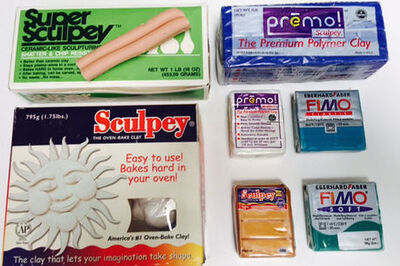
views
Dating

Put yourself out there. The more time you spend dating and socializing, the more likely you will find someone you like. Put yourself out there by attending social events organized by your friends, by taking classes and chatting with classmates, and by signing up for dating sites, apps, and services. Be adventurous and open minded: try speed dating, for instance. The most common way to meet a future partner is through mutual friends. Spend time with friends, and ask your friends to introduce you to people they think you'll like. The second is in social spaces. This can include everything from bars, to concerts, poetry readings, and gallery openings, to church gatherings. The third is through work. If you work from home, consider participating in a co-working space. Make visits to the home office and attend conferences when you can. Be slow to ask someone out if you work together regularly, however, as this can potentially complicate your work life. The fourth is through dating websites or apps, and the fifth is social media. Sign up for dating platforms like OkCupid, Tinder, Grindr, and Hinge.

Ask people out. If you know someone in real life, ask them out in person. Ask directly, so that they know what you're saying and can respond in a straightforward way. To minimize awkwardness, ask on the exit. As you leave a situation, say "I've really enjoyed talking to you, but I have to go. Would you like to have dinner sometime soon?" If you are absolutely too shy to ask someone out in person, you can call. You'll have to ask for his or her number, though. If you found the person you're interested in online, send a friendly message. If you want to get a better sense of the person, message back and forth 2-5 times before you ask them out. If you are asking out a friend, leave plenty of room for a "no." Make sure that you ask your friend out before you get so wound up that a rejection would devastate you. When you notice yourself crushing, go for it. Stay friends if it's not too painful. The person who turns you down might end up introducing you to the person you stay with.

Date calmly. If you're feeling anxious about finding "the one," you might end up scaring your dates away. Plan dates as you would plan other events: an activity you might enjoy doing with another person, and a friendly commitment to enjoying the meeting. During a date, focus on the date. Ask open-ended questions, listen actively, and be honest in your answers. Be genuine. Tell the truth when asked a question. Worry less about being judged and more about seeming phony. Stay off your phone. Focus on your date! Don't spend the whole time worrying about ascertaining whether or not your date is a good match. You can't tell something like that on a first date. Rather, focus on the conversation and the activity of the date. Don't say "I love you" or try to talk about long-term commitment on your first few dates.

Be kind. If you are dating to find a life partner, show your best self. Don't try to dominate or play mind-games with your date. Putting your date down, or talking critically of others on a date, will show your date that you are insecure or cruel. Even if you have a sense you might not want to go on a second date, do your best to enjoy the date you're on. Treat your date well! Even if you won't meet again, they still deserve your polite and friendly attention.

Arrange a date you can enjoy. Dates don't have to be dinner, wine, and eye contact. Plan something you would feel more comfortable doing. Get coffee and take a walk in a park. Visit an exhibit at a local museum. Meet for breakfast at a diner and sit at the counter. Invite your date to a party or other social event. If you get nervous in isolation, try hanging out in a group. Say yes to your date's ideas. If someone asks you out, let that person name the date. Don't assume you won't enjoy a new place or activity.
Positioning Yourself for Success

Get an education. Many couples meet in college or graduate school. It's a place where people have things in common, spend time near one another, and get a sense of one another as workers and friends. If you've already gone to school, or are unable to return, try taking extension classes in subjects that interest you: cooking, foreign languages, dance, or business. Not only is school an excellent place to meet a potential mate, but getting an education can increase the longevity of your future relationship. Couples with college education have lower divorce rates than their less-educated peers.

Take care of your health. Your mental and physical health influence who is willing to date you, and for how long. Get regular exercise and a full night's sleep each night. Eat regular meals, healthy snacks, and avoid soda and refined sugar. Visit the doctor regularly. Take particular care of your mental health. If you are too shy, depressed, anxious, or insecure to date, visit a therapist.

Take care of your appearance. To attract a partner, look your best. Be clean. Shower often, but use shampoo no more than three times a week. Brush your teeth and floss after eating, so that your breath is fresh and your teeth look healthy. Dress to suit yourself. Fashion choices are going to vary widely depending on your tastes, but in general, wear clothing that fits your body, is clean, and is not very worn out. Wear the colors that flatter you, or wear black and neutrals if you can't figure out what your colors are.

Love yourself. You won't find someone who loves you if you are unloving of yourself. Pursue the things you want in life: a job you like, friends who treat you well, hobbies you enjoy, and good communication with your family. Take care of your emotional, physical, and financial wellbeing. Treating yourself well demonstrates emotional stability, an extremely attractive characteristic.

Nurture your friendships. Friends are the mostly likely people to introduce you to your life partner. They are also the people who will help you through the rough cycles of dating, who will support you when you find someone you like, and who will be your companions when you are lonely. It's hard to date if you're isolated, and it's hard to come off as confident and attractive if you're lonely and desperate for companionship. Be good to the friends you have. You don't have to be a social butterfly. Keep the social commitments you make, reciprocate favors, and tell your friends what you appreciate about them.
Finding Someone to Stay With

Plot out what you want. Think about the things you most want in life: companionship, children, financial stability, a strong community, artistic success, to live up to your principles, to enjoy yourself. Think of where you would like to be in three years, five years, thirty and fifty years. Don't think "What do I want in a partner?" but rather "What do I want in my life?" Look at your relationship and see if it supports your life goals. If you find it does not, ask yourself if you are willing to live without things for the sake of the one you are with. Adapt to what you find. Most people are actually terrible at knowing what they want. If you find someone who supports you in your desire and who expands your horizons—someone you care about enough that they have changed you—you might have found your life partner.

Be best friends. Romance is not a great predictor of what makes a relationship strong enough to last a lifetime. Rather, truly respecting, enjoying, and caring for your partner will take you through to the end. Don't commit for a lifetime to someone until you have had a chance to become dear friends. Look for overlapping senses of humor, and the ability to have fun even in mundane or difficult circumstances. Respect your partner's mind. If you don't enjoy the way your partner thinks, you aren't likely to enjoy talking for the rest of your life. Have interests in common. You don't have to do everything together, but you should share some preferences for activities and ways of relating to people. Be equals. Relationships in which one person dominates are unhappy ones. If one of you treats the other in ways that would not be tolerated in the opposite direction, you are headed for trouble. You and your partner should trust, support, and respect one another. If you share these bonds, your relationship is strong.

Fight gently. Relationships are fragile at the start. Check the impulse to run after the first fight. Fighting can feel like the end of the world, but it is natural, and it's a part of all healthy relationships. Learn to fight better. Start sentences with "I" instead of "you." Say how you feel instead of laying blame on your partner. De-escalate your fights. If an argument is growing angry, de-escalate by connecting with your partner. Stop arguing, start listening, and reach out. If you two can touch when you're panicked, try holding hands or hugging. Use humor. Suggest a change of scene. If you are on a date and you have a fight, for instance, reset by asking your partner on another date. Move to a different venue or different seats where you are and greet one another again. Don't avoid speaking your mind or discussing controversial topics out of fear of a break up. Rather, find your calm and ask your partner to do the same. Unless you have a distinct need for a specific change, avoid bringing up topics of controversy that have provoked previous fights. You are less likely to convince your partner of your point of view and more likely to wear them down. Your relationship is more important than winning. For instance, if you and your partner have fought about a friend who is important to you but who drives your partner crazy, do bring up the topic of him staying in your life. Don't, however, argue that your partner is wrong that your friend is annoying. Your friend annoys your partner, and the annoyance will deepen if you argue.

Say how you feel in stages. As you go on more and more dates with someone, you might start feeling a rising need to declare your intentions. You might find yourself constantly wondering what your date feels, whether they're as serious as you are. Don't press for answers, but do let your date know that you are having a good time. After a date, tell her that you had a good time. After a few dates have passed, tell your date that you are really enjoying the time you spend together. When you feel ready to date exclusively, check in with your date. Say you like her and you would like to date only her. Ask if she's interested in that. If she's not ready, give her time. People move at different rates. Try not to say "I love you" on the first few dates. When you feel that you love someone, hold onto that beautiful energy until a month or two have passed. If you are dating someone you really like but they say "I love you" before you are ready to hear it, tell them that you aren't ready to say that yet but you might be soon. Say you are serious about continuing to date.

Take your time. Marrying young will increase your chance of divorce. So will marrying someone you just started dating. If you are hungry for companionship, invest in your friendships. Date lovingly, not expecting every relationship to last, but respecting and enjoying the people you date. When you find someone you like, date them for at least three years before proposing marriage. Getting to know one another over time will increase your likelihood of staying together.




















Comments
0 comment